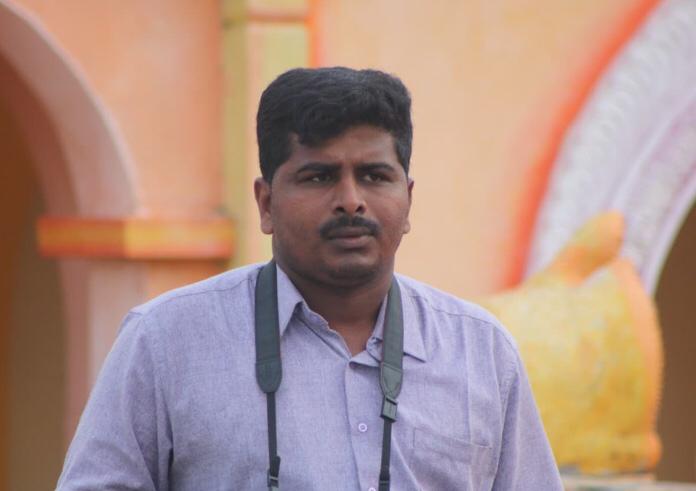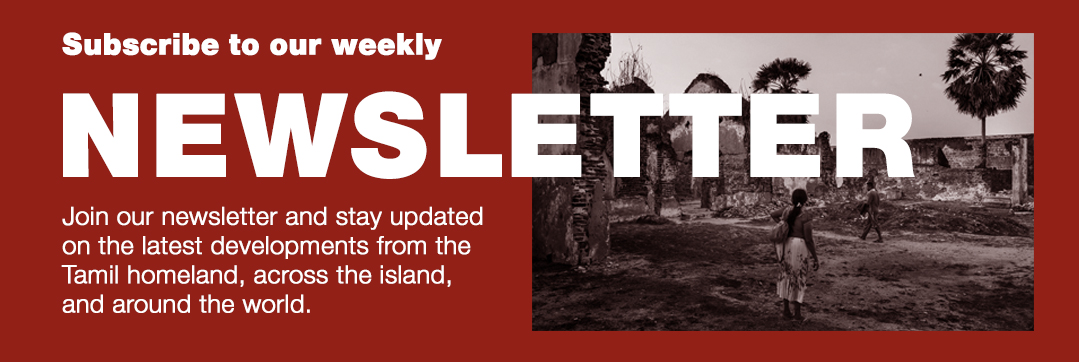
As we draw closer to next month’s parliamentary elections, Sri Lanka’s security forces have stepped up their activities in the Tamil North-East. There have been dozens of arrests, including that of a child for allegedly attempting to ‘regroup the LTTE’, alongside several incidents of state violence. A growing number of checkpoints have been set up with armed soldiers patrolling in greater numbers than before. And as violence continues, the harassment of Tamil journalists has also ramped up.
Our Mullaitivu correspondent Shanmugam Thavaseelan was summoned for questioning by the Sri Lankan police last month, after he had attended the scene of an assault of three Tamil men by allegedly intoxicated Forest Department officials. Whilst the officials accused of assault have not been placed under any investigation, the officer in charge of Mulliyavalai police station called Thavaseelan personally and summoned him to attend for questioning that day.
Thavaseelan has faced similar intimidation before. He was arrested by Sri Lankan authorities last year after a navy officer put forward trumped-up claims that he had been assaulted by the journalist. And the year before that, the military admitted to detaining and questioning Thavaseelan, whilst he was reporting on the army’s plans to appropriate Tamil land in the district. His recent summoning comes just weeks after journalist Nadarasalingam Thusanth was assaulted in Kilinochchi even as Sri Lanka’s security forces patrolled the streets and enforced a curfew in the midst of the coronavirus outbreak.
As we reported on the harassment of our correspondent, the Sri Lankan state’s intimidation of civil society was highlighted by UN Special Rapporteur Clément N. Voule. Addressing the UN Human Rights Council, Voule said “almost one year after my visit, and slightly over six months after Presidential elections were held, I am deeply concerned”.
And whilst UN officials were calling for the protection of human rights defenders in Geneva, Sri Lanka’s prime minister and accused war criminal Mahinda Rajapaksa, slammed Non-Governmental Organisations (NGOs) that he claimed were “spreading slander against the government”, as he announced the launch of a special inquiry headed by the CID into such organisations.
More than half a year into another Rajapaksa administration, the state has continued to tighten its grip around those who it sees as a threat to its hegemony - namely journalists, human rights defenders and Tamils. There are dark times ahead on the island. And unless there are more than just words from member states in Geneva, this ever worsening trajectory of the island may not be halted. The recently passed sanctions regime in the UK, which the British High Commission in Sri Lanka highlighted, would be a good place to start.
Dr Thusiyan Nandakumar, Editor-In-Chief
_____
For more regular updates, sign up to our newsletter below.
____

